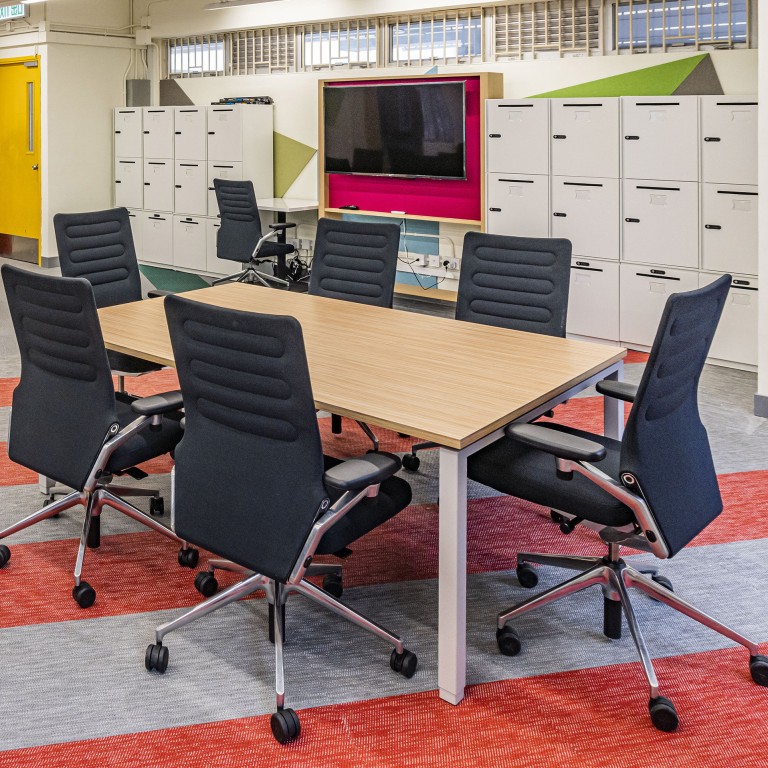
When office leases end, the furniture becomes trash. Not any more – schools and NGOs in Hong Kong reuse it under sustainability initiative
- Sustainable Office Solutions has saved more than 17,000 items of furniture, diverting 250,000 kilograms of waste from Hong Kong landfills, in less than a year
- The furniture it rescues and redirects to schools, community spaces and NGOs in the city comes from companies that vacate rented office space
In Hong Kong, when companies need to move offices most of their furniture and interior finishes end up in one place: the landfill.
“What is really remarkable is the quality of the furniture being discarded,” says Wall, managing director of JEB Group, which specialises in workplace design and architecture. Just under a year ago, he helped launch Sustainable Office Solutions – SOS for short – to recuperate and reuse as much of that furniture as possible.
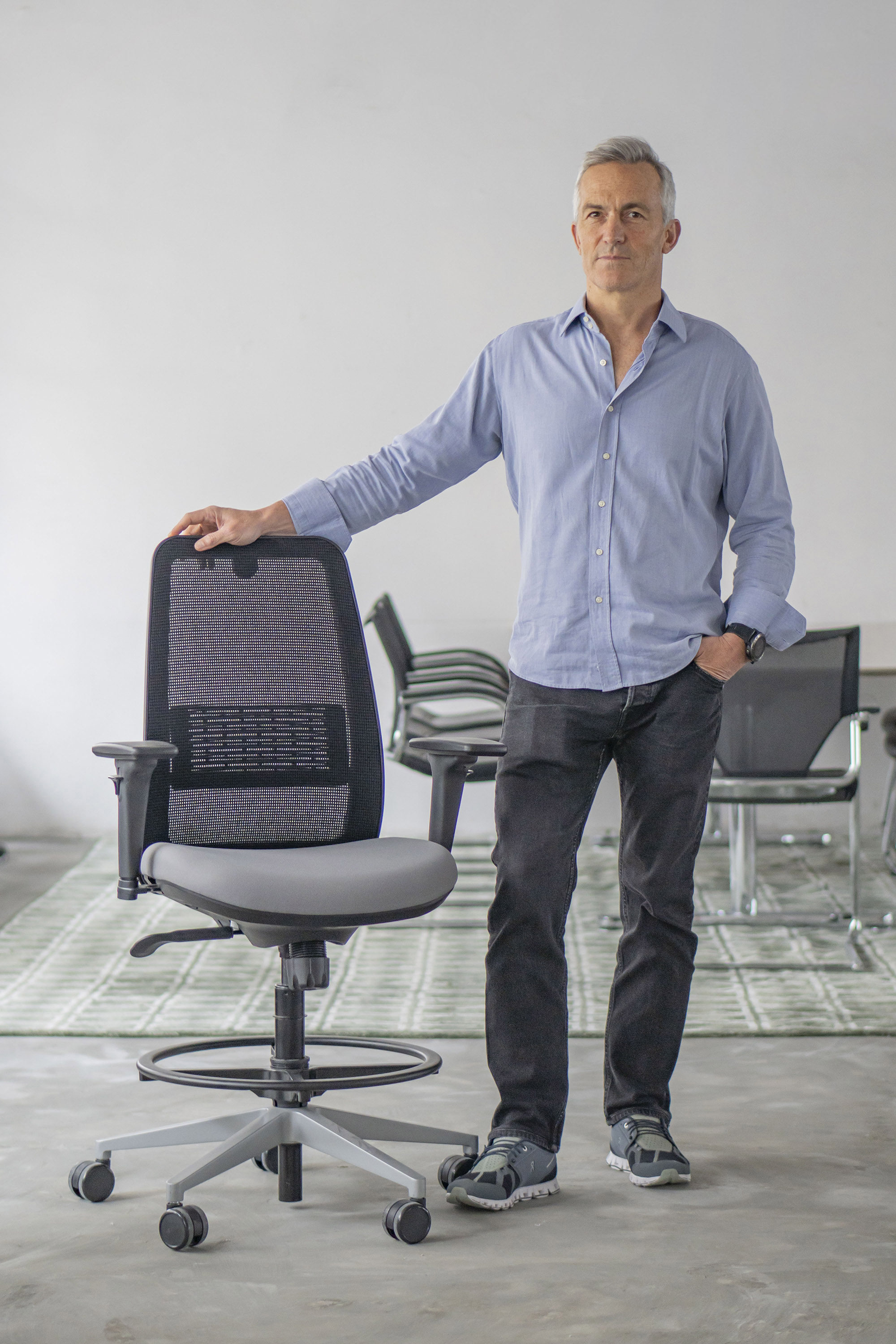
Some of those items have been reused by the companies that would have otherwise discarded them, but many of them have gone to schools, community groups and other non-profit organisations that cannot stretch their budget far enough to buy new furniture.
“This project was started primarily to have an impact on the environment, but it has this unintended but very welcome social benefit,” says Wall. “We’re able to take abundance and spread it around Hong Kong.”
Why furniture rental is the waste-free answer for short lets
The latest SOS initiative is a case in point. Using furniture from the Hong Kong offices of a major European bank, SOS helped the government-subsidised Lok Sin Tong Yu Kan Hing Secondary School, in Wong Tai Sin, East Kowloon, kit out a new artificial-intelligence lab.
“We found we had limited resources for the furnishing of school facilities,” says school principal Lau Chun-hang, who is also the chairman of the Hong Kong Subsidised Secondary Schools Council.
He came across SOS when he began looking for an organisation that could supply the school with affordable furniture. “The money and effort saved can be diverted to the refinement of the school’s curriculum for the benefit of our students and the community,” he says.
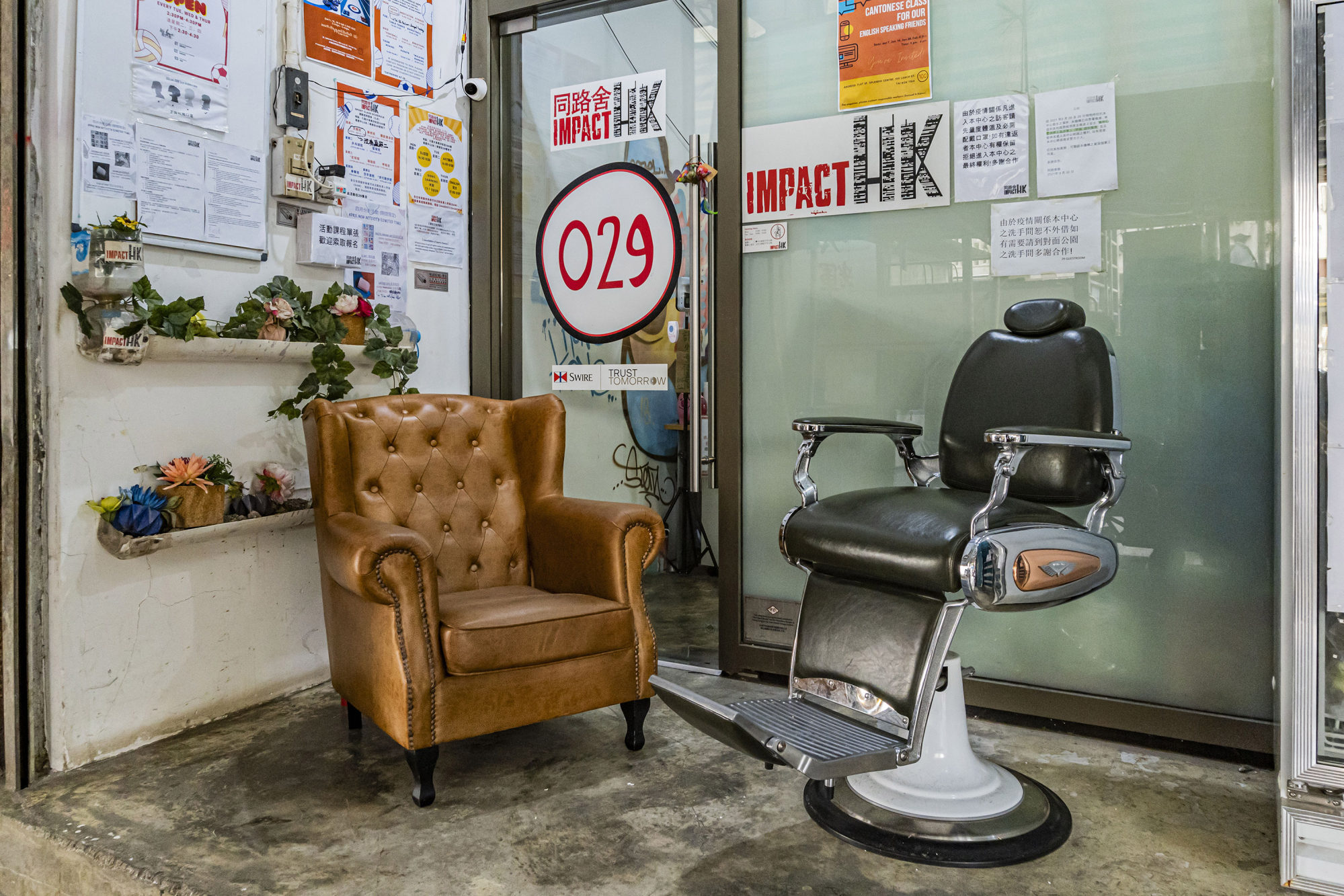
He was also motivated by a concern for the environment. Lau has pioneered other eco-friendly initiatives at his school, including using fish waste from a student-run aquarium to fertilise the school’s garden.
Wall says the process of recuperating old office furniture begins when SOS learns of a company needing to quit its premises.
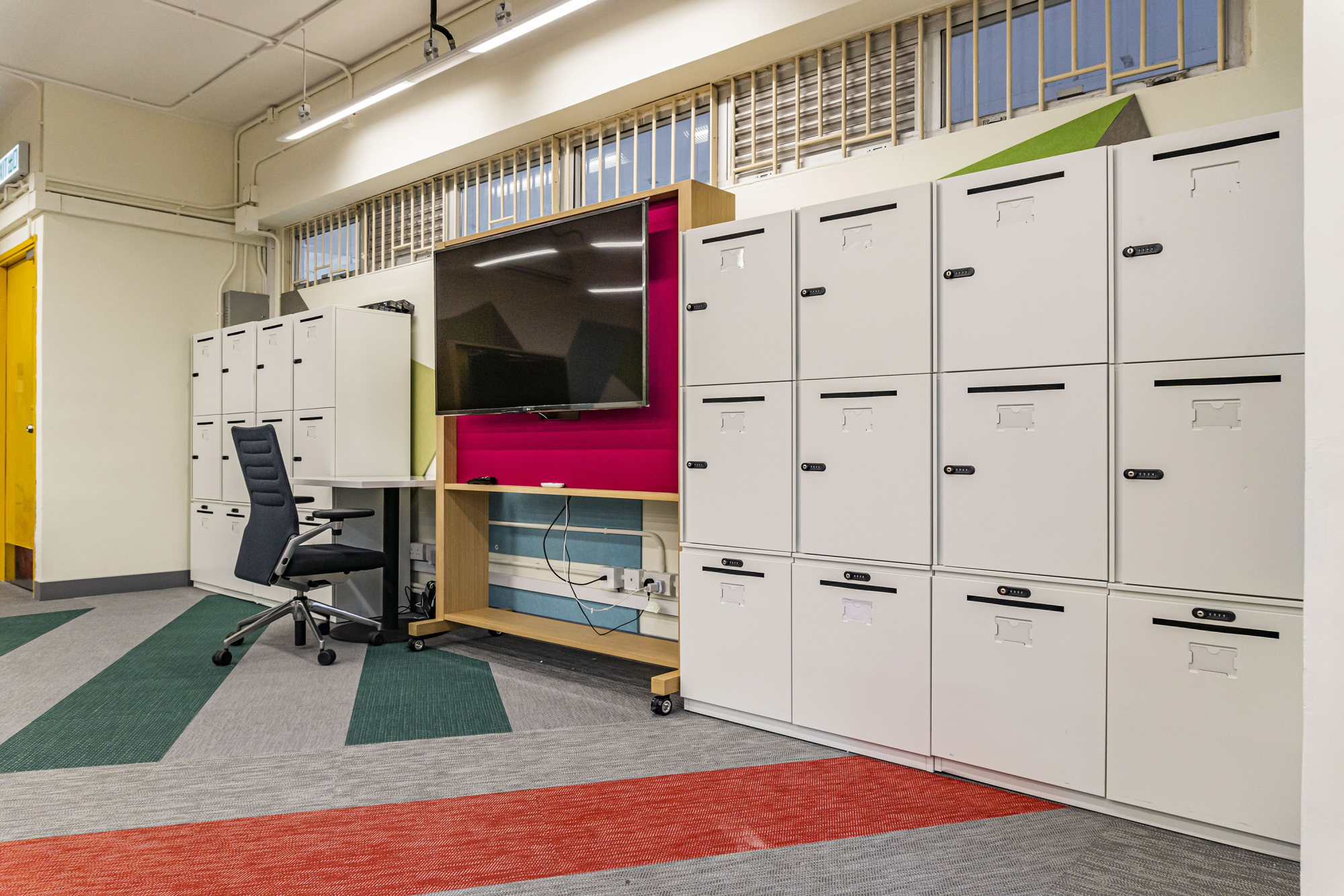
“Landlords tend not to be flexible about the last day you can move,” he says. “Part of our strategy is to get in as early as possible. If we know someone is moving in eight months, we’ve got eight months to find a suitable [recipient for the donated furniture].”
The next step is to inventory the furniture.
“We take it back to the client and tell them which are the items that are still in very good condition and they should consider reusing,” says Wall. The client “gets the first bite at the cherry”, followed by the company’s staff, who can opt to take smaller items home.
“What’s left we go through to the donation and the circular partners process.”
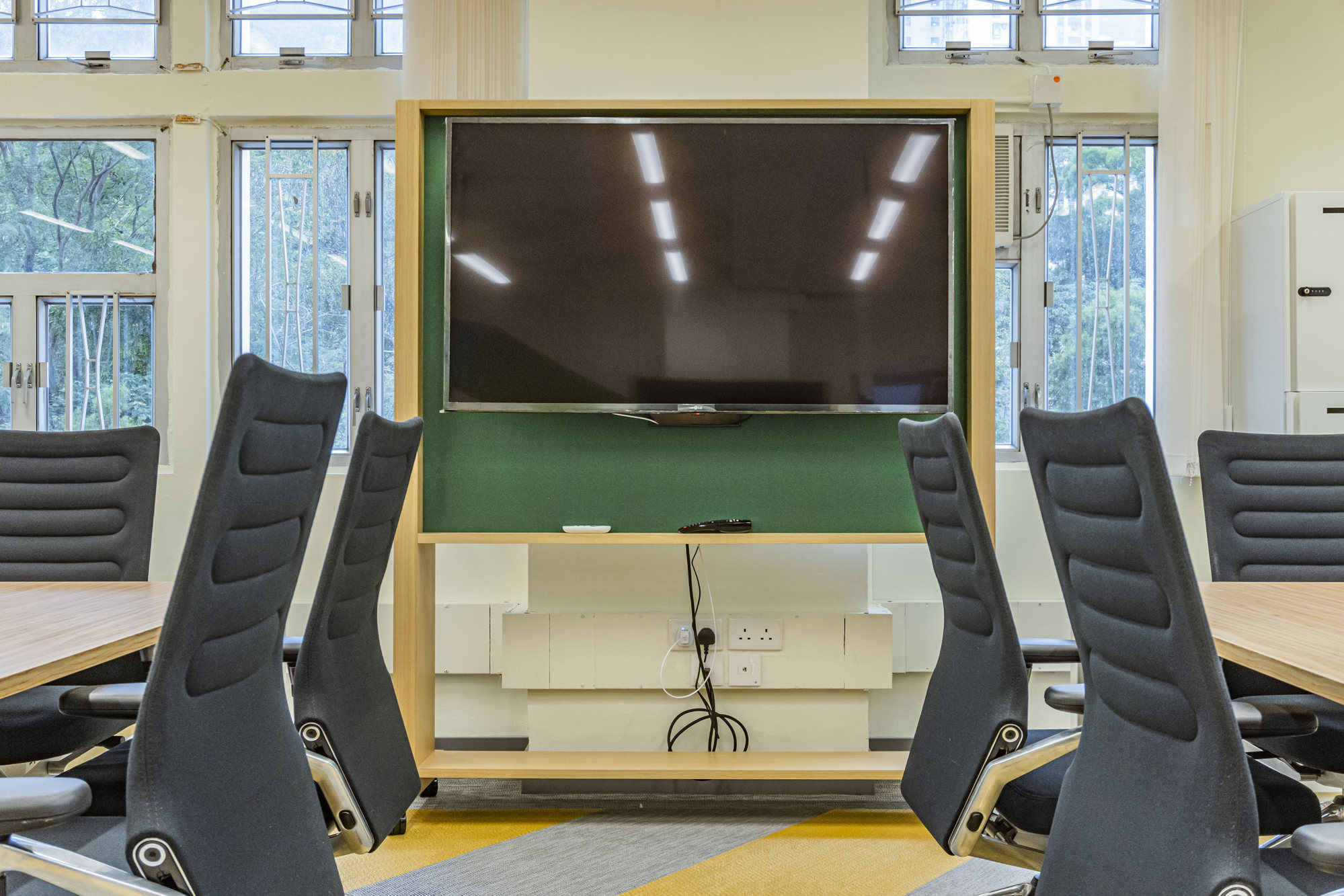
Usually, a lot is left. Refrigerators, microwave ovens, photocopiers, printers, televisions and computer monitors are commonly discarded, along with conference tables, desks and work chairs. Much of it is top-of-the-line.
“We’ve got everything from the Aeron chair by Herman Miller to Steelcase [office chairs], to items from Vitra, Haworth, Wilkhahn – the top executive furnishing companies in the world,” Wall says.
For recipients of the donations, the benefit of having access to items they could not otherwise afford is obvious.
“The furniture offered by SOS is cosier and more practical than our existing furniture, and some are even for senior executives in the business sector,” says Lau. “It is an amazing experience for our students.”
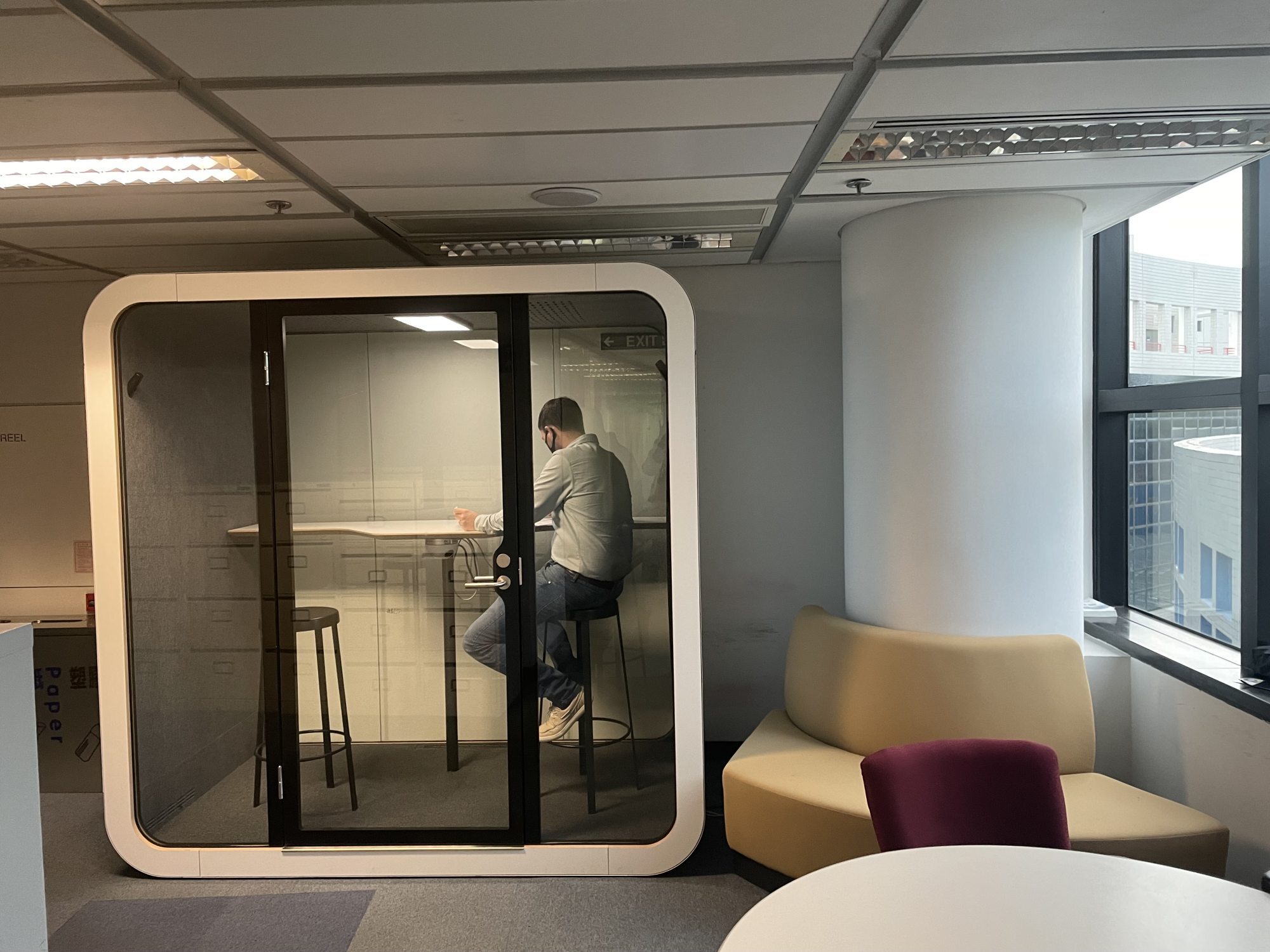
The objects it has saved represent nearly 1.2 million kilograms of carbon emissions that would have been produced in making new furniture and appliances, or which would have been emitted as discarded materials decayed in landfills.
Wall says its efforts are still not enough.
2022’s big home design trends? Soft colours, natural light, lots of plants
“The SOS team can take the furniture, and the storage, and the fridges and the microwaves and redistribute it, but at this point in time we can’t take the ceiling grid, we can’t take the ceiling tiles, we can’t take the carpet,” he says.
“If you start going through the list, there’s a lot that goes into building an office. When a tenant moves out, they’ve got a period where they need to reinstate the premises or the landlord will reinstate the premises and charge the tenant. That’s what we’re dealing with.”
The requirement that tenants reinstate their space before the end of a lease – meaning they need to gut it to bare concrete walls, floor and ceiling – is “just so wasteful”, says Wall. But it’s the norm in Hong Kong.
“Changing the attitudes of the corporate environment at large is our challenge,” he says.

